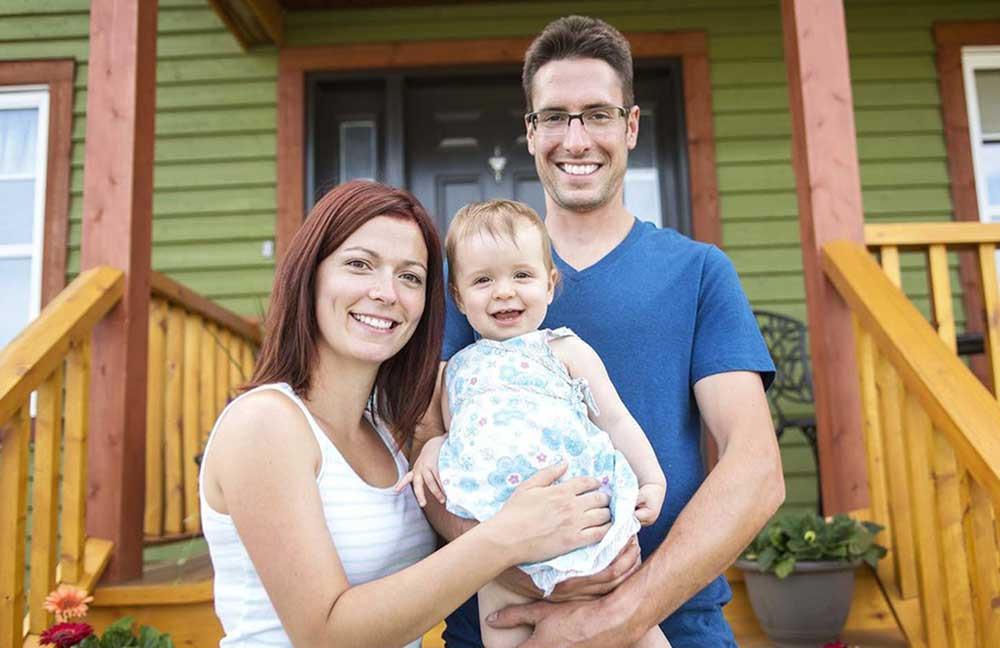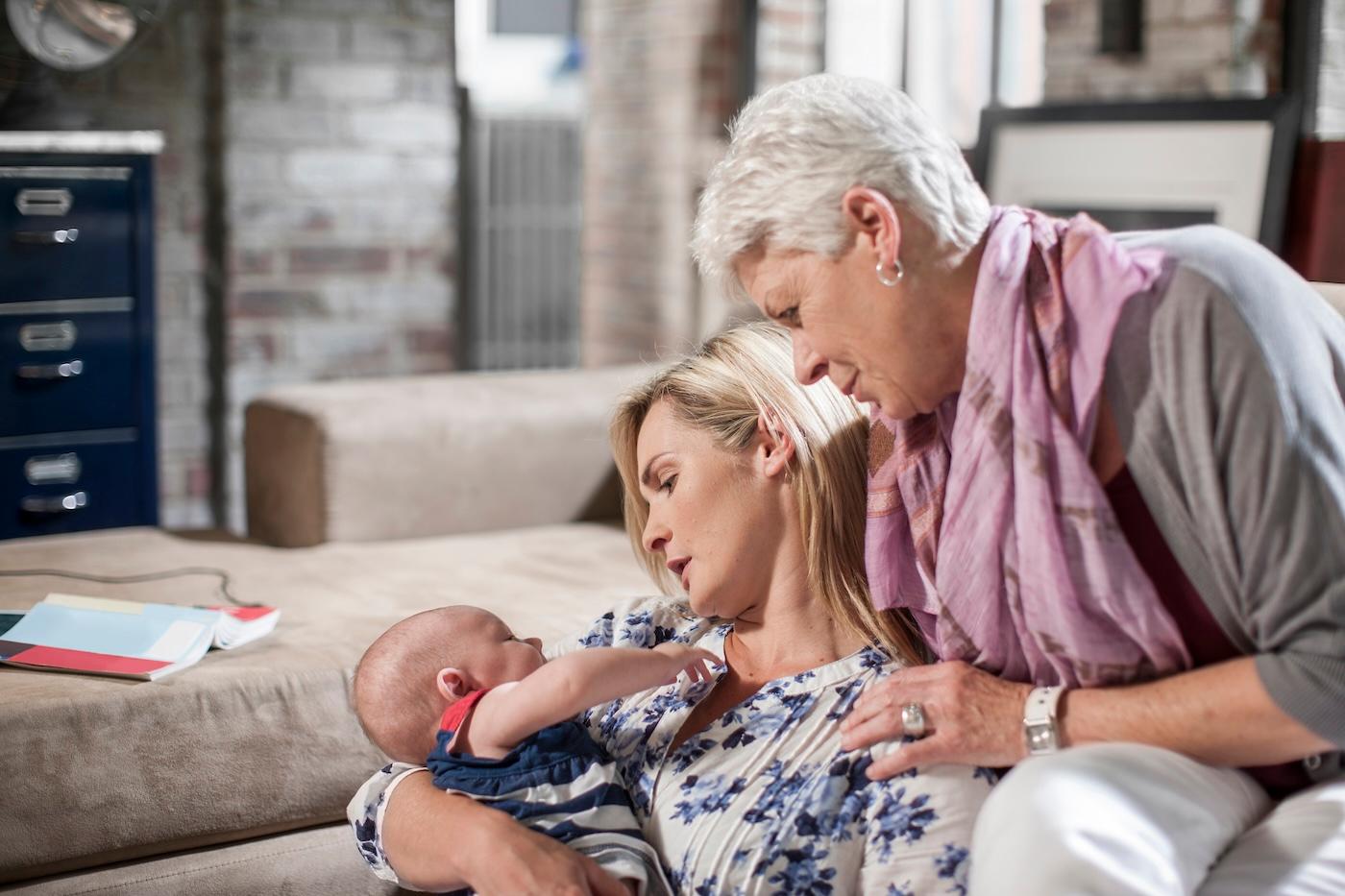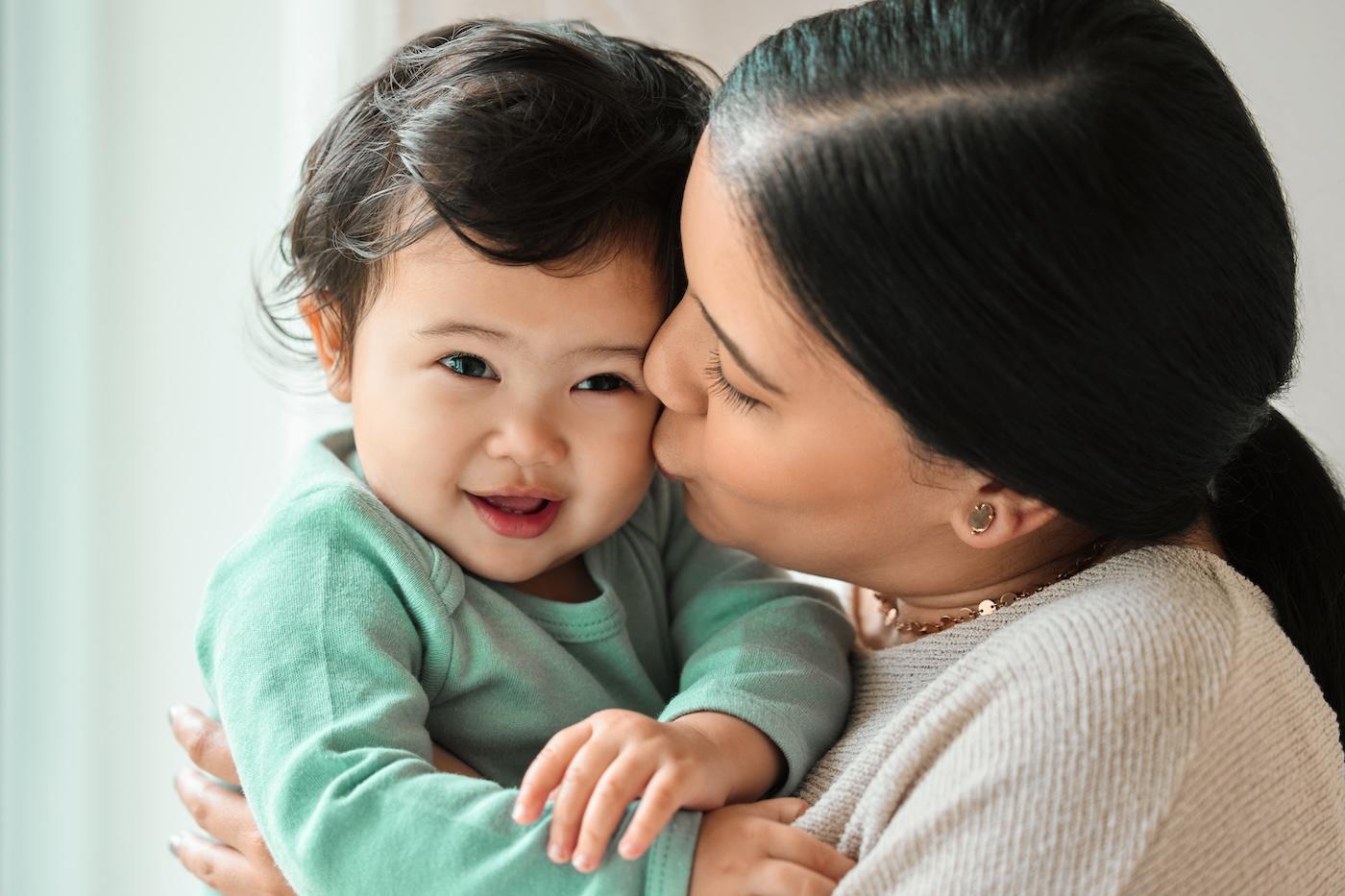PARENTS
A Preemie Mum's Story of Postpartum Depression & Recovery
How this mom overcame PPD after a tough journey.
Written by
Inger Carter

Ashley, 29, was looking forward to becoming a mom—it took only two months to get pregnant with her husband of five years, she was excited about her birth plan (an unmedicated, vaginal delivery) and she was toying with a yellow-purple color scheme for the nursery.
Her pregnancy was progressing healthily. “It was perfect—I didn’t have morning sickness or any weird food cravings,” she says.
So at 23 weeks pregnant, when Ashley started experiencing headaches and numbness in her fingers, she chalked it up to run-of-the-mill pregnancy woes. But doctors determined she had a combination of early signs of preeclampsia and HELLP syndrome. She was declared a high-risk pregnancy and hospitalized for a few days, then put on home bed rest. “I had only heard of preeclampsia from a scary episode of Downton Abbey, so that’s how I explained it to people,” says Ashley.
At a 25-week checkup, her OBGYN had more bad news. Ashley’s blood work indicated preeclampsia, and she was hospitalized immediately. “I was admitted to the hospital for a few weeks, and one day, the baby stopped moving, so I had an emergency C-section,” she says.
For a self-described “type-A planner,” this was devastating news.
Ashley’s daughter was born at 28 weeks, weighing 1 pound, 14 ounces and measuring 13.5 inches long. “I had never seen a baby that small,” says Ashley. “She was purple, with no body fat, and her newborn hat was two sizes too big.”
The baby was sent to the NICU for 84 days and assigned a medical team to monitor her progress. “Thankfully we had a private room—a rarity in the NICU.”
But the NICU had strict rules: No touching the baby 24 hours after birth, only four visitors at once, and no music or bright lights. “We had to whisper because a normal speaking voice would be stressful to her ears,” says Ashley, “and bright lights could cause her to go blind.”
Ashley and her husband spent nearly all their time in the NICU. At times, she even skipped her own pain medication doses, not wanting to step away from her daughter’s side. Each night, she returned to her own hospital room at 11 p.m. and pumped breast milk every two to three hours, which her baby would consume through an IV. “I barely got five hours of sleep per night, and I cried all the time,” she says. “I also felt like my daughter’s babysitter, since I wasn’t allowed to touch her that much.”
When Ashley returned to work three weeks postpartum, she fell into a constant loop: Waking at 4:30 a.m. to pump, driving to the hospital to feed her daughter, working her administrative job and spending her evenings in the NICU. The stress took a toll on her otherwise happy marriage.
“I felt like it was my fault that my daughter was born prematurely, as if my body had failed us both,” says Ashley. Making matters worse was an intense feeling of isolation. “Hearing pregnant women complain about how tired they were was hard,” she admitted. “I would have given anything to be pregnant a bit longer.
At her postpartum checkup, Ashley’s doctor gave her a screening assessment for postpartum depression, which “I completely bombed,” she says. She got prescribed the antidepressant Lexapro, which helped stabilize her moods.
“Before taking the medication, if you told me I had a hangnail or my house was on fire, I’d give the same response,” says Ashley. “The medicine helped me prioritize my feelings.”
When Ashley started caring for herself, the couple’s marriage also strengthened. “I was able to articulate my worries to my husband instead of flipping out in anger or sobbing from being overwhelmed,” she says, adding that she also found an online support group of women she considers “really good friends.”
Ashley’s daughter is now 15 months old, and she’s meeting milestones for a 12-month old child. For example, she’s now learning to walk.
“But my daughter is always smiling and laughing,” says Ashley. “It’s almost like she knows how tough things were and she’s determined to be happy now.”
Dr. Karp Weighs In...
We’re grateful to Ashley for sharing her story and we hope it encourages other struggling moms to get the help they need. Despite the fact that postpartum depression affects up to 15% of all new mothers, most cases go undetected. Why? Many women feel shame about disclosing their emotions and often think they are responsible for their symptoms/stress, which they tie to lacking competence as a mother. That mindset is especially dangerous for mothers of premature babies, whose rates of PPD can be as high as 40%.
What Preemie Fathers Need to Know About Postpartum Depression
Fathers are not immune to the effects of postpartum depression — one Australian study found that in cases of “extremely small” premature babies (born at 30 weeks or less), dads had 11 times the depression risk, compared to fathers of full-term babies.
What are the causes of postpartum depression?
The top 3 causes of postpartum depression are:
- severe fatigue
- persistent infant crying (also known as colic)
- lack of support from a spouse or partner
Happiest Baby is on a mission to help families like Ashley’s, with tools that give preemies the womb sensations that they long for, calm crying, and boost infant sleep—which if addressed proactively, can prevent the onset of postpartum depression altogether. Learn more about our solutions—SNOO and the 5 S's—and read our tips for avoiding postpartum depression.
Disclaimer: The information on our site is NOT medical advice for any specific person or condition. It is only meant as general information. If you have any medical questions and concerns about your child or yourself, please contact your health provider. Breastmilk is the best source of nutrition for babies. It is important that, in preparation for and during breastfeeding, mothers eat a healthy, balanced diet. Combined breast- and bottle-feeding in the first weeks of life may reduce the supply of a mother's breastmilk and reversing the decision not to breastfeed is difficult. If you do decide to use infant formula, you should follow instructions carefully.
SHARE THIS ARTICLE
PARENT PICKS
Bestsellers



















